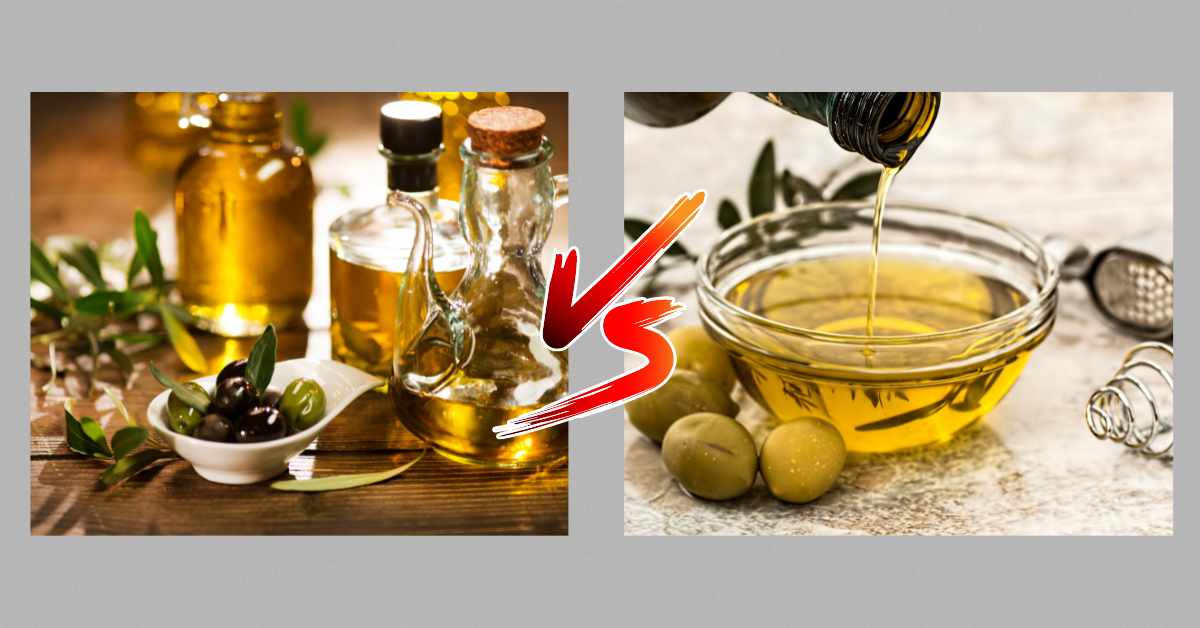Difference Between Extra Virgin Olive Oil vs. Regular Olive Oil
Olive oil has long been celebrated for its numerous health benefits and versatile culinary uses. However, when it comes to choosing the right olive oil for your needs, the options can be overwhelming. In this article, we will delve into the differences between extra virgin olive oil (EVOO) and regular olive oil, exploring their health benefits, uses, and price differences to help you make an informed decision.
Extra Virgin Olive Oil
Extra virgin olive oil is the highest quality and most flavorful olive oil available. It is made from the first pressing of olives, without the use of any heat or chemicals, resulting in a pure and unrefined oil. The acidity level of extra virgin olive oil is less than 0.8%, ensuring a superior taste and aroma.

One of the key benefits of extra virgin olive oil is its high concentration of monounsaturated fats, particularly oleic acid. These healthy fats have been linked to numerous health benefits, including reducing the risk of heart disease and inflammation. Additionally, extra virgin olive oil is rich in antioxidants, such as vitamin E, which can help protect against oxidative stress and promote overall well-being.
Extra virgin olive oil is best suited for drizzling over salads, dipping bread, and adding flavor to dishes. Its robust flavor profile adds depth and complexity to a variety of recipes, making it a staple in Mediterranean cuisine.
Regular Olive Oil
Regular olive oil, also known as pure olive oil or simply olive oil, is a blend of refined olive oil and virgin olive oil. Unlike extra virgin olive oil, regular olive oil undergoes a refining process, which involves filtering and sometimes the use of heat and chemicals to remove impurities and neutralize strong flavors.

While regular olive oil lacks the intense flavor and aroma of extra virgin olive oil, it still contains a good amount of monounsaturated fats and antioxidants. It is a more affordable option and has a higher smoke point, making it suitable for high-heat cooking methods such as frying and sautéing.
Regular olive oil is a versatile cooking oil that can be used for a range of culinary purposes, including baking, roasting, and grilling. Its mild flavor allows it to blend well with other ingredients, making it a popular choice for everyday cooking.
Health Benefits
Both extra virgin olive oil and regular olive oil offer health benefits, although extra virgin olive oil is considered to be superior due to its unrefined nature. The monounsaturated fats in olive oil have been associated with improved heart health, reduced inflammation, and better blood sugar control.
The antioxidants found in olive oil, particularly in extra virgin olive oil, have been shown to have anti-inflammatory and anti-cancer properties. They may also help protect against age-related cognitive decline and promote healthy skin.
Uses
Extra virgin olive oil is best used in its raw form, such as in salad dressings, marinades, and dips. Its robust flavor enhances the taste of vegetables, pasta, and grilled meats. Regular olive oil, on the other hand, is more suitable for cooking methods that require higher temperatures, such as frying, baking, and sautéing.
Both types of olive oil can be used for moisturizing the skin and hair, as well as for oil pulling, a traditional oral hygiene practice. The high vitamin E content in olive oil makes it a nourishing and natural option for skincare routines.
Price Difference
Extra virgin olive oil is generally more expensive than regular olive oil due to its higher quality and production process. The careful cultivation and pressing of olives to create extra virgin olive oil result in a limited supply, contributing to its higher price point.
Regular olive oil, being a blend of refined and virgin olive oil, is more affordable and widely available. It offers a good balance between price and quality for everyday cooking needs.
Which One is Best?
When it comes to choosing between extra virgin olive oil and regular olive oil, the decision depends on your intended use and personal preference. If you prioritize flavor and health benefits in raw or low-heat applications, such as drizzling over salads or dipping bread, then extra virgin olive oil is the ideal choice.
On the other hand, if you require a versatile cooking oil that can withstand higher temperatures, regular olive oil is a more practical option. Its milder flavor and higher smoke point make it suitable for a wide range of cooking methods.
In final words, both extra virgin olive oil and regular olive oil have their own unique qualities and uses. Incorporating either of them into your diet can contribute to a healthy lifestyle. Whether you opt for the rich and intense flavors of extra virgin olive oil or the affordability and versatility of regular olive oil, both options offer a host of health benefits and culinary possibilities.







